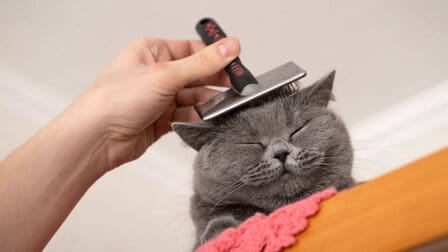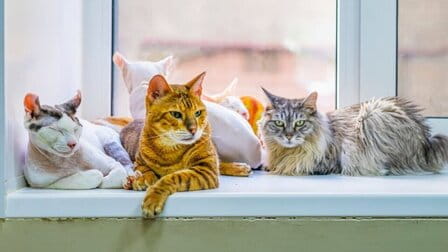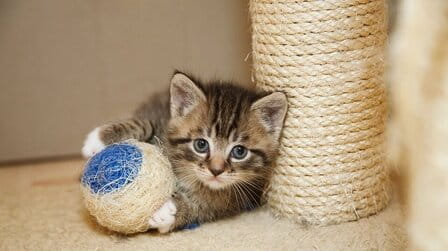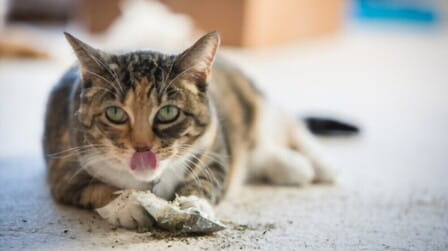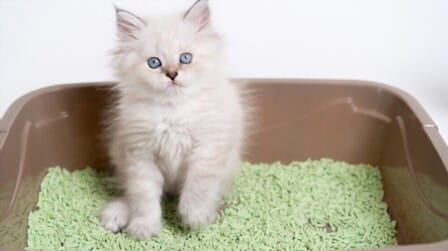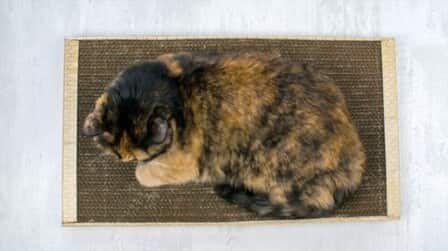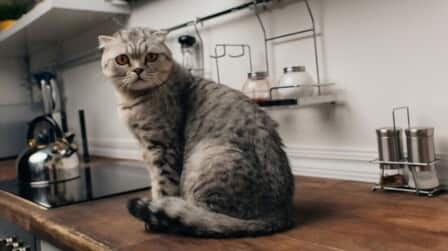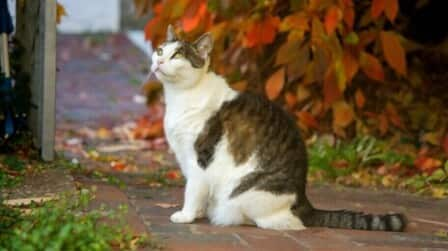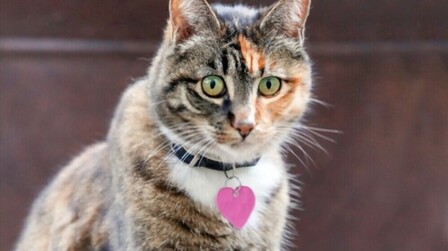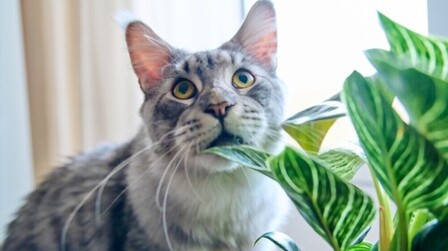British Shorthair is an adorable cat breed and is widely adopted in many countries. They have big round eyes with soft fur varying in colors, attracting cat parents with cuteness. However, there are several health problems you should notice when adopting this cat breed. These issues include heart disease, weight management, dental disease, cataract, etc. Now we would go further into the information.
1. Heart Disease
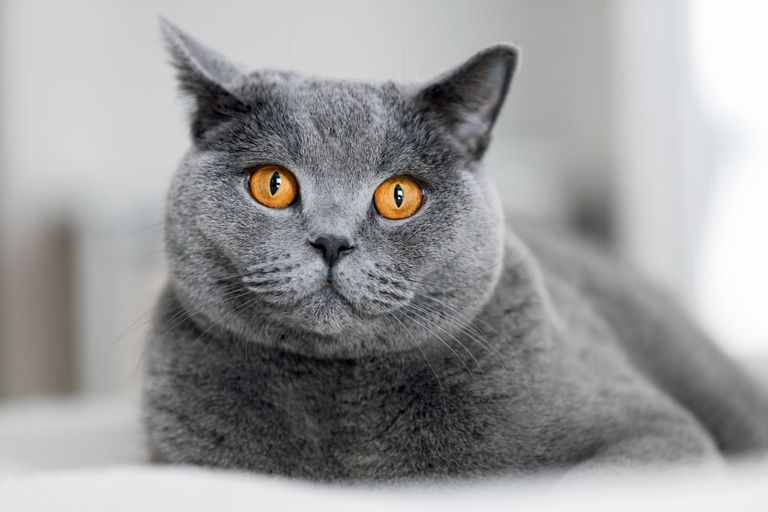
Heart disease in cats generally refers to the malfunction of the heart's structures. This health issue can be divided into two categories, including congenital and acquired. Congenital means your British Shorthair is born with it without any interference. The second term - acquired means that this heart disease will not develop in an early stage of life but the mature period.
Heart disease may include affecting the heart's wall, abnormal valse, or blood vessels. Also, British Shorthair can easily be diagnosed with hypertrophic cardiomyopathy, which is a major reason for their heart failures. Heart disease, in general, is incurable. Whilst it is the case, this health problem can do with long-term treatment.
Symptoms from your British Shorthair may indicate the heart disease can be weight loss, loss of appetite, an arrhythmia (abnormal heart rhythm which can be too fast or slow), lethargy, and collapse. The symptoms such as coughing are not so common in cats like humans or dogs. Moreover, the mentioned signs are rarely noticed by the owners.
Hypertrophic cardiomyopathy

Hypertrophic cardiomyopathy (HCM) is the most common heart disease occurring in cats. The disease causes a gradual thickness and weakening of the heart muscle. The thicker the heart muscle is, the less room is available for blood pumping. As the disease develops in time, your cat's heart will witness a decreased effectiveness in blood pumping. The HCM is driven as two groups: genetically, happening in specific breeds, and sporadic, happening to any cat of various age ranges.
Dilated Cardiomyopathy

Another heart disease happening to the British Shorthair is Dilated Cardiomyopathy (DCM), leading to the thin and flat heart muscle. Nonetheless, this disease is much less common than the HCM nowadays. The foremost reason causing the DCM is the deficiency of taurine, nutrition in cats' diet. In recent decades, the cat food on the marketplace has added taurine. Hence, it led to a decreased chance of cats getting this disease.
2. Weight Management

We all must admit that cats, considering all aspects, are not the most energetic domestic animals. Cats in general and British Shorthair specifically, spend most of their time eating, observing the surrounding environment, doing mild activities for playing, and sleeping, if staying alone. Overfeeding is also a contributor to cats' overweight. Our British Shorthair, like any other cat, loves being fed about 7 to 10 times a day. Despite their little eating per meal, such intensive feeding times will cause the kitty to be overweight. That's why free feeding should be adjusted.
Obesity

Cats have body figures like our BMI, which vary from 1 to 9, according to vets. If your British Shorthair figures are from 4.5 to 5, it has a healthy body with appropriate weight. In case the figure goes from 6.5 to 7, your cat is heavier than it needs. The number 9 indicates a grossly obese kitty. At that point, your British Shorthair would have to lose its weight for the sake of health conditions.
According to a lecturer of clinical science at Cornell University, more than 50 percent of current domestic cats face the risk of obesity for their overweight. Less than 40 percent of cats are in the appropriate health conditions. He explained that obesity is a growing problem for all cats because it leads to other serious health issues.
Osteoarthritis
Obesity decreases the lifespan of our cats and devalues their quality of life quality. One of the diseases that can develop from cats' obesity is Osteoarthritis. Osteoarthritis causes the erosion of cartilage. Cartilage is located in joints as a smooth cushion protecting the ends of cat bones. It helps the bones not rub directly into one another, causing your cat pain.
Diabetes mellitus

Diabetes mellitus refers to the insufficient production and response to Insulin, an essential hormone for both humans and cats. Diabetes mellitus can easily develop when the British Shorthair or any cat breed faces obesity. The lack of insulin production can trigger the regulation of blood sugar
3. Dental Issues
Cat parents do not always spend the best care for their kittens' teeth. More than nearly 90 percent of mature cats of more than 4 years old suffer from dental problems at least once. The most popular conditions relating to cat's dental are gingivitis, periodontitis, and tooth resorption. All these conditions lead to British Shorthair or any cat to smelly breath, loss of appetite, swelling, severe pain, and discomfort. If more seriously developed, these can cause other diseases in cats.
Gingivitis

Gingivitis when occurring in cats will leave swelling, pain, and red gums around their teeth. This statement results from a built-up plague. A plague plays like a film harboring the bacteria on a cat's teeth. The plague, if your cat's mouth is often cleaned, is believed to be beneficial for the cat. However, as your cat's mouth is not cleaned properly for a suitable intensity, it leads to the plague getting deeper and going beyond the line where the teeth and gums connect. If the bacteria from the plague has entered this level, your cat’s immune system may not be capable of responding. Consequently, it causes your cat gingivitis.
Periodontitis
Periodontitis is a result of gingivitis not being controlled or cured. As gingivitis gets more serious, the swelling, pain, and even blood will continue for a while. With periodontitis, your cat can lose one more tooth. When facing the disease, cats will appear reluctant or rejective as their feed time has come. Your cat can also turn their head to one side for easier chewing. If such an extreme condition happens, veterinarians would suggest removing the plague inside for treatment.
Tooth Resorption
Tooth resorption is extremely painful for any cat. This occurs as a result of neglected dental care. The reason causing tooth resorption is yet to be identified. The condition will begin from the inner parts of the cat's teeth, then spread to other nearby regions. Tooth resorption can start with relatively small defects to large ones, causing our cats pain and swelling. When diagnosing the tooth resorption through mouth examination or the head and jaw X-ray, the veterinarians will require anesthesia.
4. Cataract
A cataract is an eye condition that is genetically inherited in British Shorthair. Cataracts can happen to your kitty at any age range. Some other genetically affected breeds include Himalayans and Birmans. A cataract is a condition when the opacity of the lens in the cat's eyes increases. As Cataract develops, the British Shorthair cat's vision is seriously impacted. Several reasons leading to Cataracts are imbalanced diets, genetic factors, eye traumas, metabolic diseases, inflammation within the eyes, and cancer.
5. Parasites
The British Shorthair is like humans as they can get infected with parasites. The parasites may get into the British Shorthair's body through the dirty water drunk, or the cat's walking on contaminated surfaces, infected mosquitos, and food supplies. The parasites can seriously influence your cat's skin, ear, neuro system, and digestive system. Some parasites are capable of transmitting from cats to humans. This is why recent medical checks are essential for cats and owners.
Conclusion
The British Shorthair specifically and cats, in general, need attentive medical care to get the best health condition. There are several diseases you can do with long-term treatment, though not curable. Some are curable and less severe such as overweight, but it is one of the leading causes of other more dangerous conditions. Hence, we advise you get your cat playing and a nutritious diet. Usual dental care and annual health checks are also suggested.

